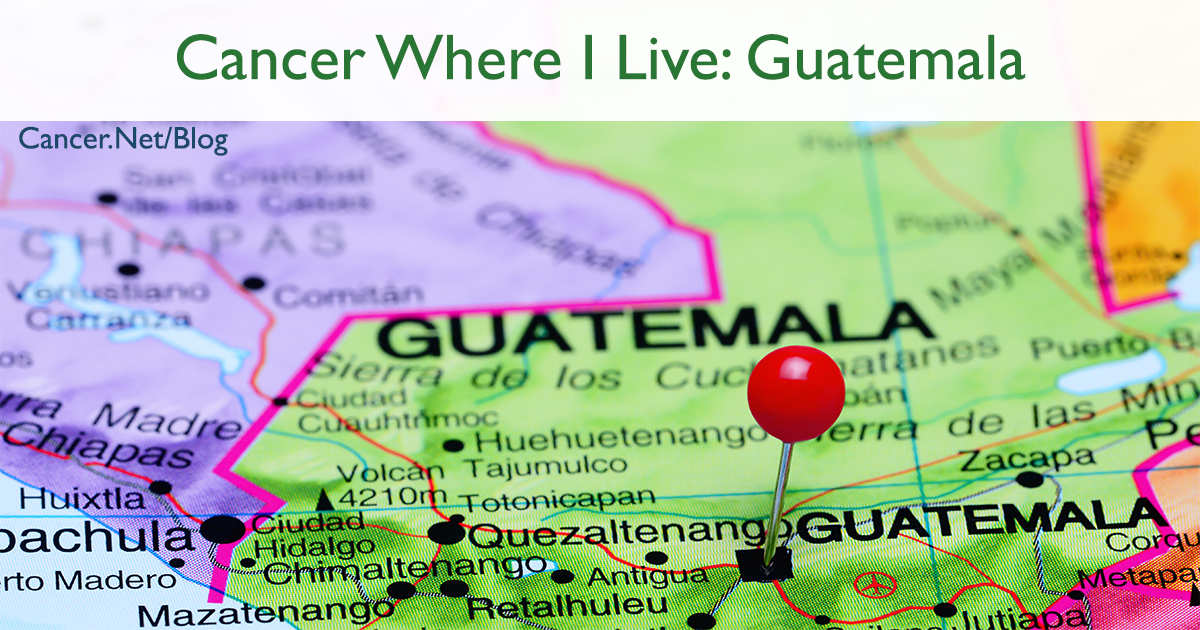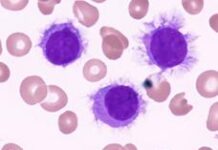
Cancer in My Community is a Cancer.Net Blog series that shows the global impact of cancer and how people work to care for those with cancer in their region. Alba Kihn Alarcón, MD, MSc, earned her medical degree from Universidad de San Carlos de Guatemala and completed her master’s degree and oncology training at Cancer Center, Renmin Hospital of Wuhan University in Wuhan, China. Currently, Dr. Kihn Alarcón is the deputy director of research at Liga Nacional Contra el Cáncer & Instituto de Cancerología (INCAN) in Guatemala City, Guatemala. She is also an American Society of Clinical Oncology (ASCO) Editorial Fellow for JCO Global Oncology. Her main areas of interest are health disparities, breast cancer, and hepatobiliary tract tumors.
Why I care for people with cancer
I lost my grandma because of stomach cancer in 2007, and in 2011, we came to have more in common than just our first name. That year, I was diagnosed with colon cancer. I was starting my clinical rotations at the hospital that year, and suddenly, I had to quit medical school for a while to receive cancer treatment. But thanks to an early diagnosis, I have been cancer-free for 9 years. My personal experience with cancer had a great influence on my empathy toward people suffering from chronic diseases, and it made me a better physician.
After my diagnosis, I met many other patients, and we were all aware of the stigma surrounding cancer as being a death sentence. As I advanced in my career, my desire to remove this idea and to care for people with cancer continued to grow. I had the opportunity to do rotations in oncology during my internship, which gave me the chance to confirm my desire to become a medical oncologist.
My hope for the future is not only to provide good treatment to patients, but also that they have long, fulfilling lives with their loved ones. Oncology goes beyond medicine. It is a field with a mission to give hope and well-being to the people suffering from cancer and their families.
What cancer is like in Guatemala
Guatemala is a beautiful, small country with a multiethnic and multilingual population of more than 17 million people. Non-communicable diseases, or diseases that cannot be spread from person to person, contribute to 59% of deaths in Guatemala, according to the World Health Organization (WHO). Cancer is the second leading cause of death by non-communicable disease in Guatemala, just behind cardiovascular disease. The most common types of cancer in the population are prostate cancer, stomach cancer, breast cancer, liver cancer, and cervical cancer, which together caused over 9,000 deaths in 2018.
Three of most common types of tumors among the population—prostate, breast, and cervical—can be detected at earlier stages with screening methods. But still in hospitals, we see patients mostly with an advanced stage of these diseases. According to recent data, the efforts of the Guatemalan government to implement Pap tests for the population has significantly decreased deaths due to cervical cancer, but this is not the same case for breast cancer. The reason for this could be that there is limited access to mammograms in rural areas or that there is a lack of knowledge among the population about the importance of early detection of breast cancer. Further studies are needed to understand the causes and risk factors among Guatemalans for other cancers, such as stomach and liver cancers, to create strategies for early diagnosis and treatment for our unique population.
How people with cancer in Guatemala access treatment
Currently, there is 1 cancer center in Guatemala, which is the non-profit Instituto de Cancerología (INCAN) by Liga Nacional Contra el Cáncer Guatemala. It is partially subsidized by the government and is the only institution offering radiation therapy. Patients are referred to INCAN by the public health system and 2 public referral hospitals, Roosevelt and San Juan de Dios. At these hospitals, most elements of health care are free of charge, and they are all located in the country’s capital, Guatemala City. The same is true of for-profit organizations or private institutes. More than half of the population of Guatemala lives outside of the capital, so many of the people seeking cancer care must travel long distances. This can delay the diagnosis and treatment of people with cancer, which may affect their survival of the disease.
According to the World Bank, 59.1% of the population lives in poverty in Guatemala. A cancer diagnosis can lead to further impoverishment that is often related to a loss of income and health care expenses. Early detection and treatment can significantly reduce deaths and treatment costs among these patients and the health care system itself. However, for screening methods to be effective, it is also important to make treatment more accessible to the people of Guatemala. This includes improving the patient referral system and the infrastructure of the hospitals for offering specialized cancer care. Through this, we can increase patients’ survival.
Where patients can find local resources and support
For people with cancer in Guatemala, cancer specialists are available at the nonprofit organization Liga Nacional Contra el Cáncer & Instituto de Cancerología (LNCC/INCAN). You can find more information on their Facebook page to get to know more about early detection campaigns and access to treatment.
During the COVID-19 pandemic, LNCC/INCAN has continued offering specialized cancer care, including protocols for virus screening and measures to reduce the risk of infection for both staff and for people visiting the institution.
Cancer.Net also provides trustworthy, expert information about cancer in both English and Spanish. Read more about what people with cancer should know about COVID-19.






